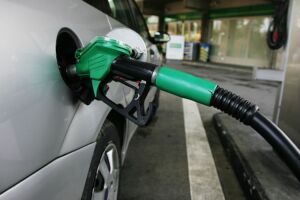News
Gazprom cuts Denmark off Russian energy … but this should not be an ‘all hands to the pumps’ situation, warn economists
This article is more than 3 years old.
With Ørsted continuing to reject Gazprom’s demands, the Russian gas giant has now cut off supply to the Danish company. Energy remains available in Denmark, but expensive, leading some motorists to fuel up elsewhere

Petrol prices remain high in Denmark, Danes look to Germany (Photo: Rama)
Gazprom, the Russian energy company, announced yesterday it will not supply more gas to Ørsted – Denmark’s largest energy company. A day earlier, the Danish company had restated its position that it would not meet Russia’s demand for payment in rubles.
Energistyrelsen, the Danish energy agency, has assured the public that Gazprom’s decision poses no threat to Denmark’s energy supply, citing the country’s emergency reserves, aggressive green energy transition, and the upcoming opening of a new gas pipeline from Norway.
Bargain hunting in Germany
However, with fuel prices remaining high, not all Danish motorists are willing to wait for prices to drop at home. Instead, a new German tax policy may bring some Danes across the border to fuel up.
The policy, which will stay in effect for the next three months, lowers the taxes on petrol and diesel in the country. Bundeskartellamtt, the German market regulatory agency, is keeping an eye on businesses to ensure the tax break translates into savings for consumers.
If it does, a litre of German petrol could soon cost 4-6 kroner less than a litre in Denmark.
Policy facing criticism
Peter Rasmussen, fuel director at Circle K Denmark, has criticised the policy. Speaking to DR, he reports that their stations in Southern Jutland are expecting a 10 to 15 percent drop in fuel sales over the next three months, as well as a drop in sales of other goods.
Within Germany, the policy has also faced criticism. Economists warn the policy could trigger a rush to refuel, increasing the risk of fuel shortages. And, by increasing demand, some say the policy could have the paradoxical effect of raising prices at the pump.
Danish PM Mette Frederiksen, at a press conference in Brussels on Tuesday, said that the Danish government will not introduce a similar tax break on petrol and diesel, citing the possibility of price increases.










































